When they said train a woman and you train a nation, they forgot to add that when you fight a woman, you fight a community. Throughout history, women have fought for their right to vote, own properties, and be included in government together as a force.
In light of everything happening in Nigeria with #EndSARS, we decided to curate different times in Nigerian history where women have led protest for change.
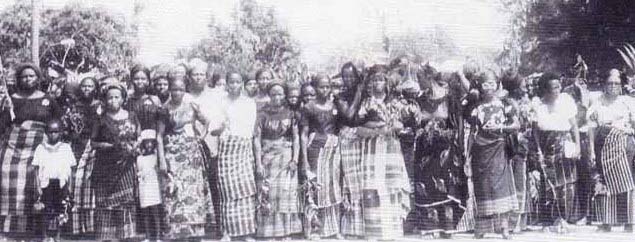
1. Agbaja women protest of 1910s
When the women in Agbaja area saw a decrease in domestic animals and observed an increase in female mortality, they stayed away from home for a month in protest. These women left their husbands’ villages and went to either Umunumu or to Orie Ekpa (market) with their mats so they could sleep wherever night met them. When their husbands went to ask the reason for their withdrawal, they said too many women were dying.
The men were forced to cook for themselves and even prepared food in large quantities to be taken to the place the women were encamped. To resolve the issue, every man had to swear on Ala – the earth – that they had not stolen the women’s animals nor killed any woman. Refusal to swear had a death penalty.

2. Calabar women protest of 1924
In the year of our lord, 3,000 women in Calabar went out to protest a market toll that was required by the government. Imagine mobilising a crowd of 3,000 without the help of social media. Back then, the presence of women associations and market women networks helped the protest movement.
3. Aba women riot of 1929
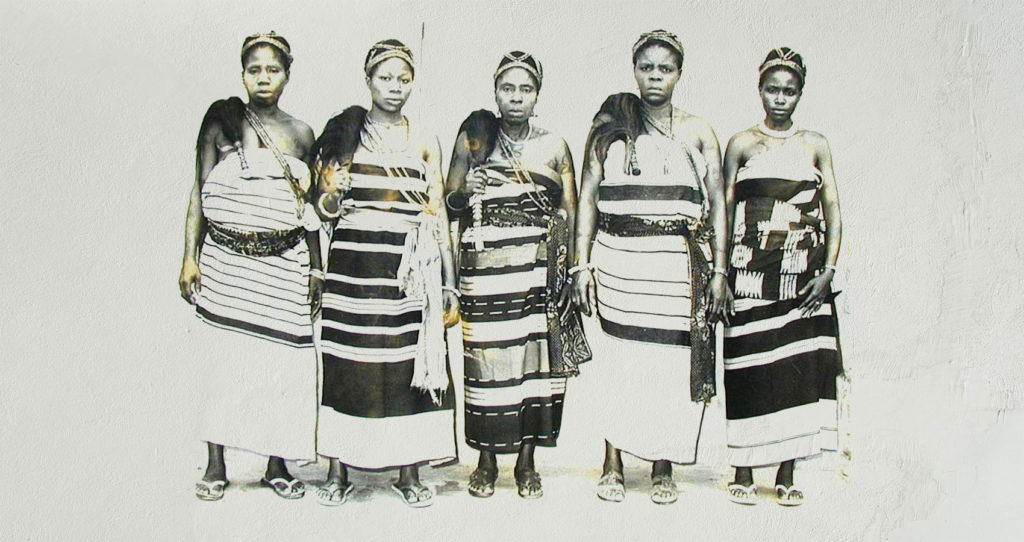
The Aba Women’s riot is also known as the Women’s war of 1929. Nigerian history is incomplete without the story of these women who fought against the injustice of the colonial administration. Before the colonisers took over, women in Igboland had a place in government. They were represented in all meetings and recognised as an important part of the political movement. The colonisers in trying to set things up in their own way completely shut the women out of power, choosing only Igbo men as representatives.
They tried to establish a “moral order” with patriarchal tactics that backfired when the women revolted against the increase in school fees, corrupt officials, forced labour and the final straw; taxing of women. These women were already burdened with supporting their families and helping their husbands pay tax. Faced with hyperinflation and low output of agricultural produce, the women settled that they would not pay taxes nor have their property appraised.
The protest succeeded in giving women representation in government.
4. Abeokuta’s women revolt of the 1940s
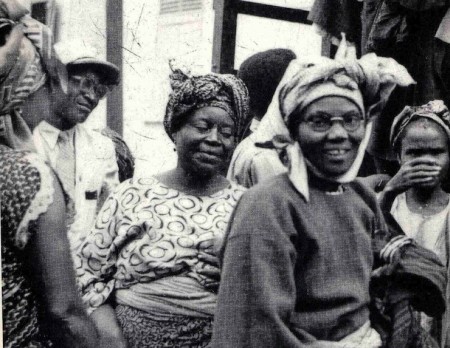
These women spent several years protesting the tax increase and the lack of women representation in government. The Abeokuta women believed that until they were granted representation in local government, they shouldn’t pay taxes differently from men. This revolt lead to the creation of Abeokuta Women’s Union (AWU) under the leadership of Fumilayo Ransome-Kuti. This political organisaton, united market women and middle class women. It challenged the colonial rule and patriarchal structure.
During the protest, the government promised and failed them. Each time, they regrouped and hit harder with their protest. They continued to advocate for women’s rights in Nigeria and were recognised for the role they played in the Nigerian nationalist movement. The group emerged as one of the first proto-nationalist feminist activist groups in Nigeria.
5. Bring Back Our Girls movement of 2014
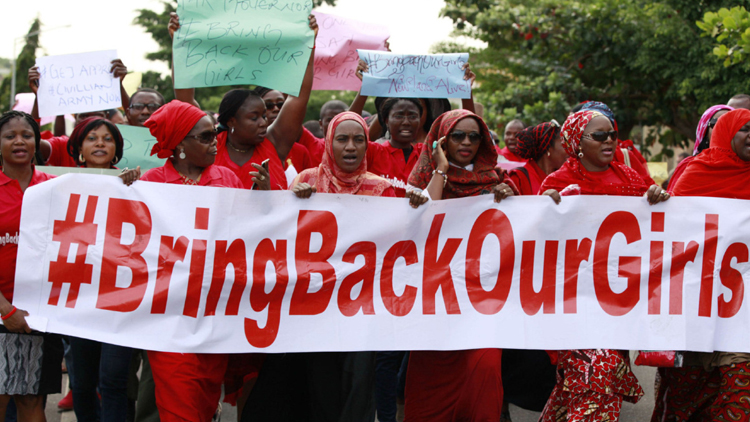
After over 200 girls were abducted from the school in Borno state by Boko Haram, all eyes were on the Nigerian government to do something. When it seemed like the government wasn’t making progress, Nigerian women mobilised themselves in Kaduna, Abuja, Lagos and across the country to protest for the rescue of these girls. The #BringBackOurGIrls and #SaveOurGirls went viral and piqued the interest of the international community. Women from all over the world joined the protest and over a million people signed the petition to mobilise world leaders to help rescue the girls.
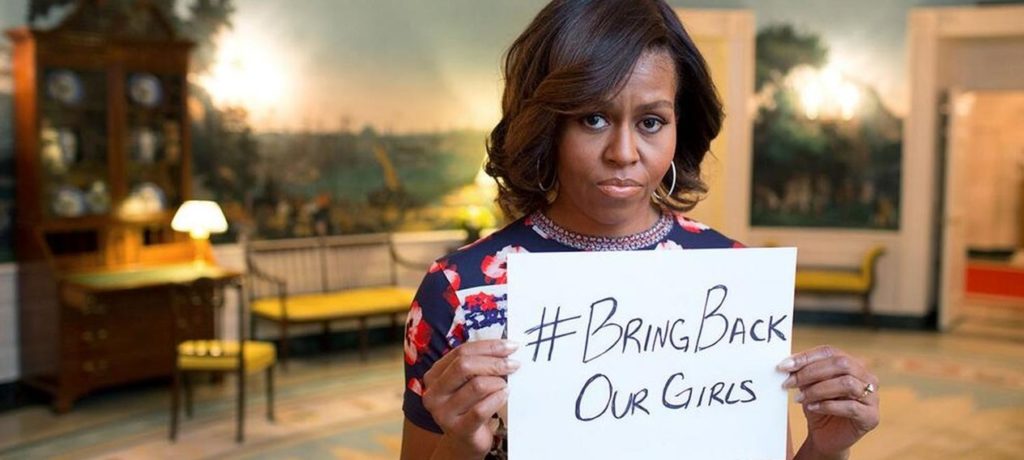
6. Market march “stop touching us” movement of 2018
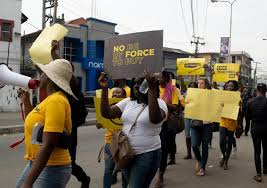
Women are fed up with being groped and harassed in market spaces. In 2018, Damilola Marcus started the Market March Movement to bring an end to sexual harassment at Yaba and other markets across the country. The traders who did the touching tried to justify their actions as a business strategy to get customers and in some cases, the women were “indecently” dressed. The march had young women in market spaces demanding not to be touched. Although some people tried to make a joke of the movement, it was effective in raising awareness. They are active on twitter as @MarketMarch.
Watch Zikoko exclusive interview with Dami on this movement:
7. Nigerian women protest against rape and sexual violence
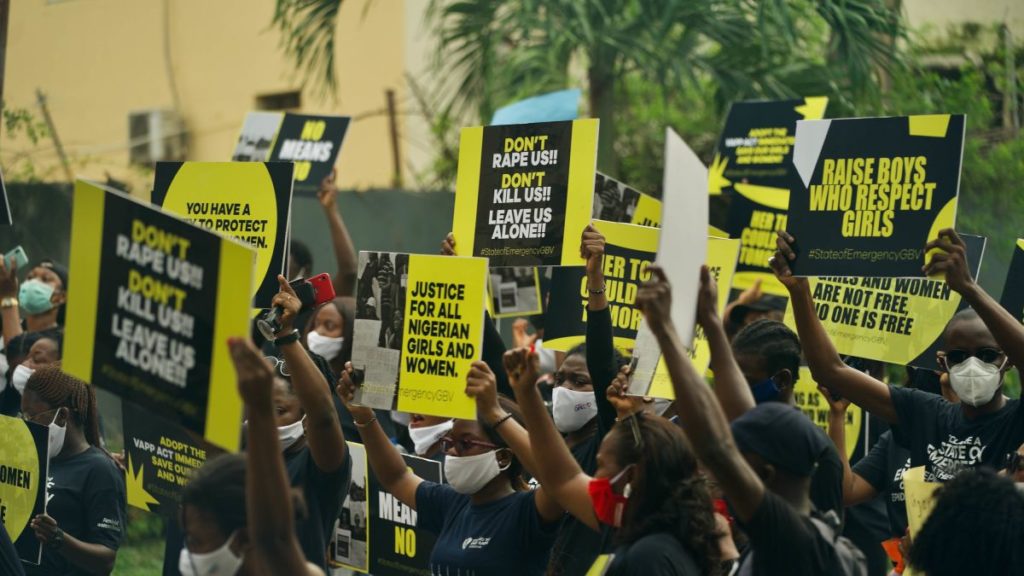
In June 2020, Nigerian women took to the streets after a series of high-profile rape cases caught the interest of the people. Following the story of 22-year-old Uwa Vera who was raped and murdered in a Church, more stories of women getting raped and killed surfaced online and this led to a protest organised by women. Women mobilised themselves and held a protest in Abuja and Lagos. The hashtag #NOmeansNo trended online as more victims of rape shared their story. There was a movement to stop victim-blaming and to discourage people from enabling rape with their silence.
Kindly reply this with other notable protests that were led by women. This list will be updated as you do.




